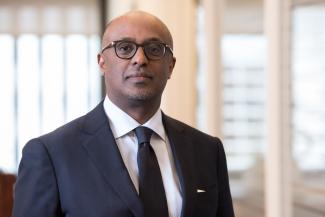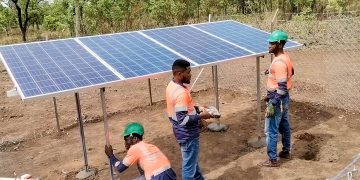Abebe Selassie: Ghana’s programme approval by IMF Board hinges on financing assurance from external creditors
Ghana has reportedly met all the pre-conditions required for its programme request to be approved by the executive board of the International Monetary Fund (IMF), except for financing assurance from external creditors, according to IMF Director of the Africa Department, Abebe Aemro Selassie. Selassie has urged Ghana’s creditors to fast-track negotiations to provide the needed financing assurance so that the IMF can go to the board for Ghana’s programme approval.
The Director added that the government has taken several encouraging measures to support the programme approval by the board, including tough steps to reduce macroeconomic imbalances, such as revenue mobilization. However, he noted that Ghana’s challenges will require addressing over the course of the program period, with revenue mobilization being a critical area for reform. Selassie emphasized that the necessary reforms will need to be carried out in a multi-year process.
Despite the challenges ahead, the IMF officials are optimistic about Ghana’s progress towards securing a programme very soon, based on the progress made with external creditors. However, Selassie emphasized the importance of the required financing assurance from Ghana’s external creditors, which is the only outstanding issue holding up the approval of Ghana’s programme request.
Meanwhile, Finance Minister Ken Oforit Atta has projected that Ghana should get an IMF board approval in May 2023. The IMF officials have not disputed this proposed target being put out by the government. One IMF official, who wanted to remain anonymous, told JoyBusiness that “Ghana is on course to secure a programme very soon based on progress being made with the external creditors.” Another IMF official, who is close to the Ghana programme, told JoyBusiness that they were surprised by the progress made by Ghana towards meeting the pre-conditions for the programme, especially the tough ones.
The IMF’s programme for Ghana is aimed at supporting the country’s efforts to stabilize its economy and address its fiscal and external imbalances. The programme is expected to provide policy support and financial assistance to Ghana, which has been struggling to manage its public finances amid a sharp fall in commodity prices and the impact of the Covid-19 pandemic on its economy.
Overall, Ghana’s progress towards securing the IMF programme is a positive sign for the country’s economy, which has been facing several challenges in recent years. The programme could help to support Ghana’s economic recovery and provide a much-needed boost to its public finances. However, there is still work to be done, and Ghana’s creditors will need to provide the necessary financing assurance to ensure that the programme can go ahead.








